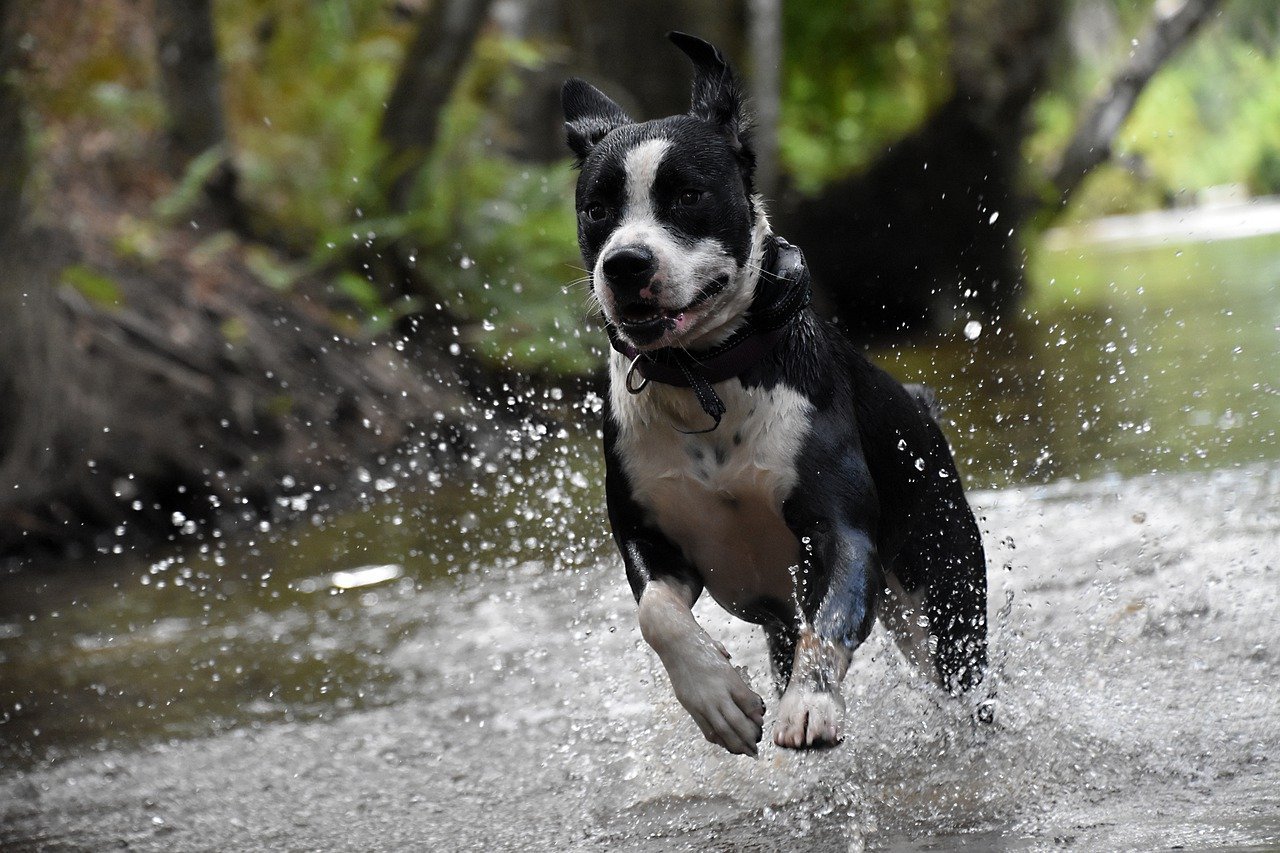
Hey there, pet parent! Dealing with stiff joints in your furry friend can be a real challenge, but fear not! We’ve got your back. Whether you have a playful Labrador Retriever, a majestic German Shepherd, or a tiny Chihuahua, managing those creaky joints is crucial for their well-being. So, let’s dive in and discover some pawesome ways to tackle this issue!
Picture this: your doggo’s joints, once nimble and spry, now making those uncomfortable cracking sounds. It’s not a pleasant sight, is it? But worry not, because you can make a real difference. With a little know-how, you can become the superhero your pet needs!
From tailored exercise routines to special diets, we’ll explore ten techniques to help your furry companion overcome stiffness. Whether it’s gentle massages, cosy heating pads, or joint-friendly supplements, we’ve got a whole arsenal of tricks up our sleeves.
Remember, your dog’s comfort is in your hands. So, join us on this journey and let’s get those tails wagging again! Together, we’ll tackle those stiff joints head-on and make sure your furry friend enjoys a life full of joy and pain-free movement. Let’s do this!

What are the causes behind stiff joints in pets?
Ever wondered what could be causing those stiff joints in your four-legged pal? Well, let’s take a closer look together, shall we? Here are six possible reasons behind those creaky hinges in your furry friend, whether you have a lively Golden Retriever, an athletic Greyhound, or a loyal Bulldog.
·Age is just a number, but it can affect joints too
Just like us humans, dogs like your wise and mature Dalmatian or elegant Dachshund can experience joint stiffness as they age. It’s a natural part of the aging process, as wear and tear take a toll on those joints over time.
·Let’s talk about genetics
Oh, those inherited traits! Certain breeds, such as your adorable Poodle or mighty Rottweiler, may be more prone to developing stiff joints due to their genetic makeup. So, keep an eye out if your furry buddy falls into that category.
·Weighty issues
Extra pounds can be a big burden on those delicate joints. Your cuddly Corgi or fluffy Beagle might face more joint stress if they’re carrying excess weight. Maintaining a healthy weight through a balanced diet and regular exercise can do wonders for joint health.
·Overexertion and injury
Just like humans, dogs can suffer from joint injuries too. Those high-flying leaps and energetic sprints of your agile Border Collie or energetic Jack Russell Terrier might sometimes lead to strained ligaments or sprained joints. It’s important to let them rest and recover to avoid long-term stiffness.
·Arthritis, the unwelcome guest
Arthritis doesn’t discriminate, affecting breeds like your regal Great Dane or playful Boxer. This common condition causes inflammation and stiffness in the joints, making movements uncomfortable for your furry companion.
·Sneaky developmental issues
In some cases, developmental conditions like hip or elbow dysplasia can contribute to joint stiffness. Breeds like your majestic Labrador Retriever or sweet Saint Bernard may be more susceptible to these conditions, which require early detection and proper management.

10 Tips for Managing Stiff Joints in Pets
When it comes to managing those stiff joints in your furry pals, a little know-how goes a long way. So, here are ten pawesome tips to help your beloved companion find relief and keep those tails wagging! Whether you have a lively Dalmatian, a playful Poodle, or a majestic Great Dane, these tips are for you.
1. Keep ’em moving
Regular exercise is key! Tailor activities to your dog’s breed and age, like gentle walks for your elderly Golden Retriever or agility training for your active Border Collie. Remember, movement helps lubricate those joints and keeps them flexible.
2. Bedtime comfort
Ensure your pooch has a cozy bed with extra cushioning. Orthopedic beds work wonders, providing optimal support, especially for breeds prone to joint issues. So, treat your regal German Shepherd like royalty or pamper your lovable Labrador Retriever with a plush sanctuary for their joints to rest and rejuvenate.
3. Weight watch
Maintaining a healthy weight is crucial! Extra pounds put stress on those joints. Consult your vet to determine the ideal weight for your dog breed, whether it’s your adorable Beagle or feisty Jack Russell Terrier.
4. Rub-a-dub-dub
Remember, massages aren’t just for humans! Treat your furry friend to a gentle massage session. Kneading their muscles and joints not only increases circulation but also eases stiffness. Grab some lavender-scented oil, create a serene atmosphere, and give your beloved pet the gift of a soothing and relaxing massage experience.
5. Warm it up
To provide comfort, apply warm compresses or use heating pads. Just like snuggling up in a cozy blanket on a chilly day, the soothing warmth can work wonders for your furry buddy, whether it’s your energetic Boxer bouncing around or your playful Bulldog enjoying some downtime.
6. Food matters
Opt for joint-friendly diets rich in omega-3 fatty acids, glucosamine, and chondroitin. These nutrients support joint health and can be beneficial for breeds like your graceful Greyhound or loyal Saint Bernard.
7. Supplements to the rescue
Make sure to have a chat with your vet about joint supplements. These little helpers, like fish oil or specialized joint supplements, offer valuable support to your furry companion’s joints. They can provide essential nutrients and promote joint health, so your beloved pet stays happy and active.
8. Swimming fun
Take advantage of your dog’s love for water! Swimming is a low-impact exercise that puts less stress on joints. So, grab your bathing suits and enjoy some splashy fun, whether you have a water-loving Labrador or an adventurous Spaniel.
9. Physical therapy
Consider physiotherapy or hydrotherapy sessions. These specialized treatments can help strengthen muscles, improve mobility, and reduce joint stiffness. Your dedicated Dachshund or active Corgi will appreciate the extra care.
10. Visit the vet
Regular check-ups are a must. Your vet can monitor your pet’s joint health, provide tailored advice, and prescribe medications if necessary. It’s all about keeping those joint issues in check for your fluffy Pomeranian or energetic Jack Russell Terrier.

Managing joint stiffness with home remedies
When it comes to managing joint stiffness in your furry pals, home remedies can be a game-changer. So, let’s dive into six effective tips that can help bring relief and comfort to your beloved companions. Whether you have a lively Jack Russell Terrier, a majestic Great Dane, or a playful Dalmatian, these remedies are worth a try!
Hot and cold therapy
Apply warm compresses or use cold packs wrapped in a towel to alleviate joint stiffness. The warm sensation relaxes muscles, while cold therapy reduces inflammation. Alternate between the two, like a spa treatment, to soothe your energetic Boxer or graceful Greyhound.
Omega-3 fatty acids
Boost your pet’s diet with omega-3 fatty acids, found in fish oil or flaxseed oil. These healthy fats have anti-inflammatory properties, benefiting breeds like your adorable Beagle or loyal Labrador Retriever. Just a spoonful a day keeps the stiffness at bay!
Gentle exercise
Engage your furry friend in low-impact exercises to promote joint mobility. Swimming, short walks, or controlled play sessions work wonders for breeds like your agile Border Collie or athletic German Shepherd. Keep those joints moving without overexertion.
Turmeric power
Harness the natural anti-inflammatory properties of turmeric. Add a pinch of this golden spice to your pet’s food, helping to ease joint discomfort. Your playful Poodle or energetic Bulldog may enjoy the added flavour and potential benefits.
Comfortable bedding
Provide your furry friend with a soft and supportive bed. Memory foam or orthopaedic beds work well, cushioning joints for breeds prone to stiffness, such as your regal Golden Retriever or majestic Saint Bernard. Let them snooze in comfort!
Massage therapy
Pamper your pet with gentle massages to improve circulation and relieve stiffness. Use your fingertips or a pet-specific massager to knead their muscles and joints. This luxurious treatment benefits breeds like your loving Dachshund or playful Corgi, bringing relaxation and relief.
To conclude
Managing joint stiffness in your pets with home remedies is both practical and effective. By implementing hot and cold therapy, incorporating omega-3 fatty acids and turmeric into their diet, encouraging gentle exercise, providing comfortable bedding, and indulging them in soothing massages, you can help alleviate discomfort and improve their quality of life.
However, always keep an eye on their condition and consult a veterinarian for professional guidance. With your love and care, these home remedies can make a significant difference, allowing your furry companions, whether they are energetic Jack Russell Terriers or majestic Great Danes, to enjoy happier and more comfortable days.

